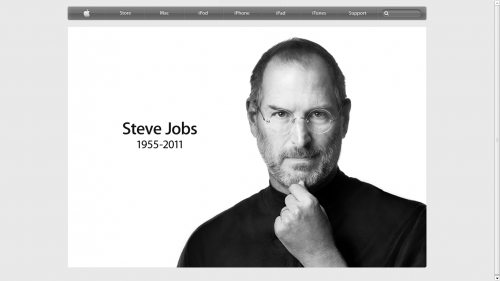I have these headphones for less than a year. But somehow they feel ancient. They are all bent and twisted. The left earplug does not work no more. The rubber on the plug pops out every time I unplug them. And they make me think I hear aliens sometimes. Why I don’t get myself another pair is beyond me.
Month: October 2011
A photograph alive
Once in a while among all the noise on the Web, I find something special, a jewel. Today is just such a day. I came across a photography blog – From Me To You. It is a very well presented, inspirational collection of images from a New York based photographer. Nice webdesign, plenty of content – that was good enough already. But when I saw some really awesome photographs brought alive as animated GIFs, I was stunned. I mean, I saw plenty of animated GIFs in my life. But most of the time, they are used for illustrative purposes, more accessible short video clips, or funny comics. Here, it’s a totally other story. I think this is genius.
There are more and you absolutely have to check them out. This is like … like … like bullet-time photography in the Matrix movie.
Update: Apparently, this is something called a cinemagraph. You can see more of these at cinemagraph.com.
Ubuntu naming permutations
Even though I don’t use Ubuntu myself, I think nothing stops me from sharing the fun those guys have these days. But first, if you are anything like me, you need a little bit of context. Here is a wiki page that explains Ubuntu code names and lists some of the previous ones:
The official name of an Ubuntu release is “Ubuntu X.YY” with X representing the year (minus 2000) and YY representing the month of eventual release within in that year. Ubuntu’s first release, made in 2004 October (10th month) was Ubuntu 4.10. Since the actual release date is not known until it’s ready and humans tend to prefer names rather than numbers, a set of codenames are used by developers and testers during the buildup to a release
[…]
The development codename of a release takes the form “Adjective Animal”. So for example: Warty Warthog (Ubuntu 4.10), Hoary Hedgehog (Ubuntu 5.04), Breezy Badger (Ubuntu 5.10), are the first three releases of Ubuntu. In general, people refer to the release using the adjective, like “warty” or “breezy”.
Well, now that we do have a context, here come the naming permutation from Mark Shuttleworth – a leader of the Ubuntu community. Choosing the release name is not easy, especially with the help of the dictionary and all those enthusiastic contributors. Read the whole thing to get a better idea.
The letter P is pretty perfect. It’s also plentiful – my inbox has been rather full of suggestions – and we have options ranging from pacific to purposeful, via puckish and prudent. We’ll steer clear of the posh and the poncey, much as some would revel in the Portentious Palomino or the Principled Paca, those aren’t the winning names. Having spent the last six months elucidating the meaning of “oneiric” I think it might also be worth skipping the parenthetical or paralogical options too; so sadly I had to exclude the Perspicacious Panda and Porangi Packhorse (though being an LTS, that Packhorse was a near thing).
Being generally of a cheerful nature, I thought we’d avoid the Predatory Panther and Primeval Possum. Neither sounds like great company for a seven year journey, really. Same goes for the Peccable Peccary, Pawky Python and Perfidious Puku. So many bullets to dodge round here!
Flickr celebrates 200 million Creative Commons images
Flickr blog post yesterday celebrated 200,000,000 images published under Creative Commons license. According to the same blog post, this makes Flickr the largest Creative Commons image repository in the world. This is indeed a huge and important milestone and I congratulate Flickr and everyone involved in achieving it. I’ve always said that there are many photo sharing websites that serve different audiences, tastes, and preferences. But Flickr goes beyond that by providing an excellent Creative Commons platform. I hope that this will grow and flourish.
RIP Steve Jobs
It doesn’t matter if you know, like or use any of the Apple products. If you are reading this, your life has been influenced by Steve Jobs. The computer mouse that you are holding in your hand now, the computer, table, or a mobile device which you use to read this, the browser window, the fonts, the buttons, and other elements of the user interface – these are just a few things that are different today because of Steve’s work. His contribution was huge.
I’m not going to idolize him – each and every human being has his ups and downs. We all make mistakes and we all screw up. But the important thing, I guess, is whether each and every one of us makes this world any better. Steve Jobs has improved this world a lot. And he inspired many others to do the same. For that, I am grateful to him. For that I respect him a lot.
Thank you, Steve. Rest in peace.



